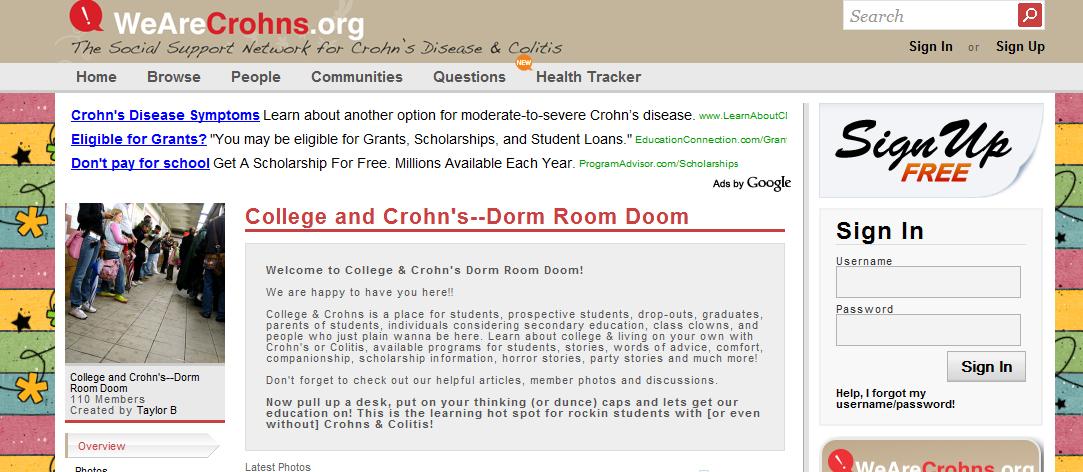
Crohn’s disease is an autoimmune chronic disease in which the individual’s immune system attacks its own intestines causing inflammation. Often the affected part is the final leg of the ileum or small intestine, although the disease can occur anywhere in the digestive tract.
The exact origin of the disease is unknown, but factors known genetic character and increase environmental risk. This evil is encompassed within the group of inflammatory bowel disease (IBD, IBD), which is also part of ulcerative colitis.
The three most common types of Crohn’s response to the affected area of the intestines: Ilealileocolonic Colonic
Alternative Names of Crohn’s: * Ileocolitis granulomatous * Ileitis * Inflammatory bowel disease *Regional enteritis * Segmental Colitis
Depending on the site of inflammation in Crohn’s disease is classified: * Ileocolitis, is the most common form, affects the lower small intestine (ileum) and large intestine (colon). * Enteritis Crohn’s affects the small intestine in general, * Ileitis, which affects the final portion of the ileum or small intestine. * Gastro duodenal Crohn’s disease, which causes inflammation in the stomach and first part of the small intestine called the duodenum. * Jejunoileitis, which causes patches of inflammation in the upper half of the small intestine (jejunum) * Colitis Crohn’s (granulomatous), which affects the colon.
The disease is characterized by periods of activity (flares) and inactivity (remission). these periods vary between patients in remission some tough years, but in other ongoing outbreaks may occur. the reference phases are characterized by the absence of symptoms; while in the phases of activity occur predominantly abdominal pain, diarrhea, vomiting, obstruction and fever, loss of appetite and weight loss.
Crohn’s disease symptoms:Patients with Crohn’s disease symptoms can be very variable. a few suffer almost no discomfort, a few others have severe and continuous discomfort, and most are between two extremes, with symptoms that come and go, generally improve with treatment.
Depending on its location of disease, symptoms may vary. People with small bowel involvement, the most common, are especially diarrhea, abdominal pain and what is called general symptoms: weakness, weight loss, and lack of appetite. In the case of colon involvement, will prevail diarrhea, sometimes bloody.
It also determines the type of disease symptoms. Patients with inflammatory symptoms often have more pain and diarrhea, while those who have symptoms of narrowing, have more pain, and may even bowel obstruction.
It is important to remember that Crohn’s can affect the anus, producing lesions of type fistula, abscess or ulcer, with associated discomfort.
Children with Crohn’s may experience delays in school performance, sexual development and growth.
Crohn’s disease Treatment:Today, Crohn’s disease is not curable, but controllable, and most people can do a normal life. the goal of treatment is to prevent further outbreaks or reduce the duration of which they arise. Alternative treatment diet: low-carb diets are based on the intake of specific carbohydrates and non-complex, which could be effective, more cases of ulcerative colitis, Crohn’s, although not in all cases. Crohn’s disease being one enfermdad autoimmune, the body attacks itself. but why? According to study this is because the immune system mistakes the body tissue structures of bacteria and viruses. many of these bacteria feed on starch (a carbohydrate complex). Therefore eliminating much of diet and certain complex sugars such as lactose, these bacteria. Then the immune system becomes less aggressive and not so strongly attacks the intestines of the digestive system. For example, in the case of rheumatic autoimmune disease that usually causes intestinal inflammation and Crohn’s disease, is considering the possibility that the bacteria in question.? Anyway, in the case of Crohn’s disease is often recommended to patients to avoid foods that will upset them. more specifically, if there is intestinal stricture not to take too much fiber. another possible treatment is a diet which is based on only take high-calorie milkshakes as ensure, after a period of about 2 months the patient goes into remission and recovered the body mass, the symptoms disappear and the likelihood of returning to have another outbreak in the short term is minimal.
Herbal Treatment for Crohn’s Disease:Boswellia and Ashwagandha are well known anti-inflammatory herbs. they have been shown effective in treating conditions such as crohn’s disease.